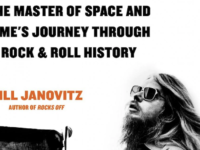Elton John’s long and often dispiriting journey back to his 1970s muse led him to an early idol, Leon Russell. The result was The Union, a sturdy, T Bone Burnett-produced collaboration full of spiralling soul and timeless revelations about starting over. Arriving on October 19, 2010, the album refurbished John’s tattered legacy even as it restores the legend of Russell — a consummate musician who saw his career stalled by a stubburn refusal to play to expectations.
“I want his name written in stone,” Elton John has said of Leon Russell. “I want him in the Rock and Roll Hall of Fame. I want his name to be on everybody’s lips again, like it used to be.” That sense of passage is underscored throughout The Union, an often-loud record with its share of quiet truths — like thundering boxcars sweeping past lonesome prairies.
They talk about good times and bad, about a lover’s bruising departure, about history’s hard-won truths, about the end. Maybe their time has come and gone. But what a time it was.
The Band-influenced Civil War-era lament “Gone To Shiloh,” also featuring Neil Young, sounds like a leftover track from John’s brilliant Tumbleweed Connection. “If It Wasn’t For Bad” shambles out with a popping gospel groove and Russell’s oddly affectionate yowl — deftly recalling his best Carny-era work. “Monkey Suit,” this brass-driven romp written by Elton John and longtime collaborator Bernie Taupin, is sort of a Honky Chateau redux.
John, who first met Russell in 1970 and later opened for him on tour, has called the legendary songwriter and pianist one of his greatest influences — and he sounds every bit the true fan on “Eight Hundred Dollar Shoes”: “Your songs have all the hooks,” John sings. “You’re seven wonders rolled into one.” Together, they produced an album in The Union that lived up to its title; it felt like an honest collaboration, rather than a one-off gimmick.
Listen to “Hey Ahab,” which has the sway and sass of a country church-service hymn. Leon Russell adds a just-right greasy accompaniment to Elton John’s bracing, gritty vocal. “When Love Is Dying,” bolstered by a soaring choral arrangement by Brian Wilson, could have been a radio staple for Elton John in a different time. (That is to say, in the time of sparkly jumpsuits and oversized sunglasses.) Russell finds a similar symmetry with his own deliciously snarky hitmaking past on “I Should Have Sent Roses,” another collaboration with Bernie Taupin: “Well, if I were you,” Russell sings, “I’d throw rocks at the moon — and I’d say, ‘Damn you, wherever you are.'”
But even as they deftly recapture the atmosphere and nerve of their best early 1970s work, there is a newfound sense of last-act perspective — and an emotional turmoil so often missing in Elton John’s glossy modern period. Credit Leon Russell, who reportedly underwent brain surgery just weeks before recording commenced on The Union. He adds a dangerous grandeur to tracks like “Never Too Old (To Hold Somebody), “The Hands of Angels” and, most particularly, on the majestically grim “There’s No Tomorrow,” inspired by an old blues march.
Evenings spent with old friends, even in happy times, are often built around a bittersweet sense of loss — and this one is no different.
- Nick DeRiso’s Best of 2015 (Rock + Pop): Death Cab for Cutie, Joe Jackson, Toto + Others - January 18, 2016
- Nick DeRiso’s Best of 2015 (Blues, Jazz + R&B): Boz Scaggs, Gavin Harrison, Alabama Shakes - January 10, 2016
- Nick DeRiso’s Best of 2015 (Reissues + Live): John Oates, Led Zeppelin, Yes, Faces + others - January 7, 2016



